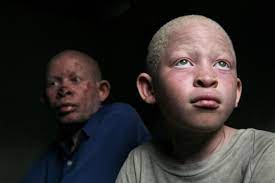United Nations holds International Albinism Awareness Day to prevent ongoing attacks and harassment of albinos around the world, especially in the African continent.
The awareness centres on sensitizing the premised on The United Nations holds International Albinism Awareness Day in its bid to defend the human rights of people with albinism in order to prevent attacks against them.
According to the UN, nothing less than 75 people living with albinism were reported killed between 2000 and 2016 in Tanzania.
The world’s governing body also disclosed that since November 2014, there have been more than 20 murders of people with albinism in Malawi and at least 170 attacks in total across Sub-Sahara Africa, and sadly, noting that these are only reported cases.
A UN’s message on its website states on Monday, “Annually, June 13 has been set aside by the UN body to highlight and create awareness about the condition of albinism and the theme for this year is ‘United in making our voice heard.’”
“Furthermore, this day seeks to celebrate how groups of persons with albinism and individuals increase the visibility of persons with albinism in all domains of life and to encourage and celebrate unity among groups of persons with albinism; to amplify the voices and visibility of persons with albinism in all areas of life as well as to highlight the work being done by albinism groups around the world,” UN says.
There are widespread concerns in the world and mainly in Africa as many children with albinism are accused of witchcraft, and consequently, ostracized, abused or killed.
It exposed that most of these inhumane acts against albinos are prevalent in Africa adding that a Malawi court, in 2019, sentenced three people to death over the murder of a person living with albinism.
UN says: “While numbers vary, it is estimated that in North America and Europe 1 in every 17,000 to 20,000 people have some form of albinism. The condition is much more prevalent in sub-Saharan Africa, with estimates of 1 in 1,400 people being affected in Tanzania and prevalence as high as 1 in 1,000 reported for select populations in Zimbabwe and for other specific ethnic groups in Southern Africa.
“In 2019, a Malawi court convicted and sentenced three people to death for killing a person with albinism.”
“Albinism is a rare, non-contagious, genetically inherited difference present at birth. In almost all types of albinism, both parents must carry the gene for it to be passed on, even if they do not have albinism themselves.
“People with albinism have also been ostracized and even killed for exactly the opposite reason because they are presumed to be cursed and bring bad luck.
“The persecution of people with albinism takes place mostly in Sub-Saharan African communities, especially among East Africans.
“The African Child Policy Forum is greatly concerned that despite national child protection laws, witchcraft accusations and ritual attacks against children have been reported in Benin, Burkina Faso, Ethiopia, Ghana, Madagascar, Niger, Angola, Eswatini, Liberia, Rwanda, Zimbabwe, Burundi, Democratic Republic of Congo, Tanzania, Central African Republic, Nigeria and South Africa.”
Vanguard.

